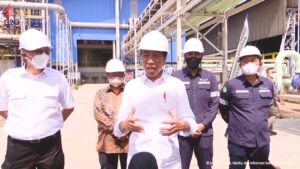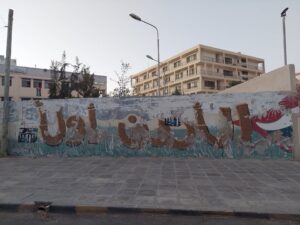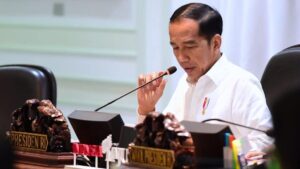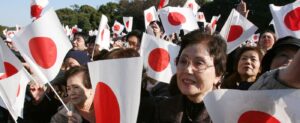New Uzbekistan – A New Model of Foreign Policy [English]

Ilustrasi Presiden Shavkat Mirziyoyev. Foto: Embassy of Uzbekistan
On 29 December 2020, the President of the Republic of Uzbekistan Shavkat Mirziyoyev addressed the Oliy Majlis and the people of Uzbekistan. In his Address, the President mainly focused on the issues of conducting an effective foreign policy capable of providing the necessary conditions for the implementation of a large-scale program of reforming and modernizing all spheres of life of society and the state.
For this purpose, President Shavkat Mirziyoyev noted the need for improving the foreign policy strategy of the country and adopting an updated concept of activities in this area. At the same time, the importance of ensuring the consistency of Uzbekistan’s open, proactive, and constructive foreign policy was emphasized.
The demand for conceptualizing foreign policy is due to the high dynamics of transformation of Uzbekistan, the transition to a new stage in the formation of a democratic rule of law with a developed market economy. Without exaggeration it is worth noting that the foundation of a new era of the Renaissance is being laid in the country, requiring qualitatively new approaches in foreign policy.
In these conditions, the adoption of this Concept of Foreign Policy is intended to accelerate the consistent formation of a favorable external environment for the sustainable internal development of the country, the effective promotion of national interests in the international arena and the progressive increase of the competitiveness of the country’s economy in the world market.
In general, a systematic analysis of the basic principles and characteristic features of the modern foreign policy strategy of Uzbekistan demonstrates a deep thoughtfulness of its foreign policy, which today could serve as an exemplary model for many countries, especially in conditions when international relations are experiencing a crisis of trust, a lack of dialogue and mutually beneficial cooperation. These distinctive features of the new external course of the country, the leading role in the construction of which belongs to the President of the Republic of Uzbekistan Shavkat Mirziyoyev, include the following basic principles.
First, a characteristic feature of the modern foreign policy of Uzbekistan is pragmatism in building relationships with all traditional partners, as well as the countries near and far abroad. In a word, Uzbekistan’s foreign policy interests are based primarily on the priorities of internal development, which actually means an obvious shift towards the economization of the country’s international cooperation and the strengthening of economic pragmatism in external relations.
Thanks to the active use of this approach, the efficiency of work on attracting foreign investment and new technologies, expanding the tourist flow, as well as increasing the export of national products to world markets has significantly increased. In particular, one of the drivers of economic growth in recent years has been a sharp increase in investment activity. As a matter of fact, the GDP of Uzbekistan in 2019 grew by 5.6 percent. Despite the difficult conditions that have arisen due to the consequences of the pandemic, the World Bank experts predict the country’s GDP growth in 2021 by 4.8 percent, which is one of the best indicators among developing countries.
Uzbekistan’s plans to strengthen its role in the establishment of international transport corridors and joint implementation of other infrastructure projects with foreign partners also received a new impetus. For instance, the wide involvement of Uzbekistan in the implementation of the Trans-Afghan corridor and joining various international transport corridors favorable prerequisites on providing access to promising markets.
Second, Uzbekistan today constantly promotes the principle of multilateralism in the country’s foreign policy. Uzbekistan stands for the development of creative processes of globalization, the establishment of mutually beneficial and equal international cooperation based on dialogue, mutual trust and respect for each other’s interests. This dictates the transboundary nature of modern challenges and threats. Among them, the epidemiological crisis and its socio-economic consequences, terrorism, cross-border crime, the food crisis, the fight against poverty and the problem of global climate change remain relevant, which can only be countered by joint efforts.
Recognizing this, Uzbekistan today is active in shaping not only a regional but also a global agenda. Clear evidence of this is the productive participation of the President of Uzbekistan Shavkat Mirziyoyev in international platforms. In particular, since 2016, at the initiative of the President, four resolutions have been adopted within the framework of the UN, designed to improve the foundations and mechanisms of international cooperation in tourism, regional interaction, interfaith understanding and sustainable development.
Special attention also deserves the important initiatives put forward by the Head of the state during the meeting of the 75th UN General Assembly, which became a solid contribution of the country to the development of mutually beneficial international cooperation. In this context, the plans to hold several international events in Uzbekistan, voiced by the President of the country during the Address to the Oliy Majlis, are another indicator of strengthening the role of the country in the international arena. One of them is a global forum under the auspices of the United Nations on “Human Rights Education”; an international conference on youth rights; regional conference on freedom of conscience.
Third, the country relies on proactivity in foreign policy and distances itself from the role of a passive observer of the ongoing processes in the region and the world. This is confirmed by the fact that by now Uzbekistan has become a member of more than 100 different international organizations and a party to more than 200 international multilateral treaties.
In this context, particular attention is drawn to the activation of Uzbekistan within the framework of the SCO, the adoption of the chairmanship in the CIS and entry as a permanent member to the Turkic Council. The growing initiative of the country on these platforms, the mutually beneficial nature of the proposals put forward and their focus on solving problems that meet collective interests also speaks of the intensification of Uzbekistan’s foreign policy activities. In particular, in 2017-2020, the Uzbek side at the SCO summits put forward more than 30 initiatives, and during this period, 36 proposals were initiated within the CIS.
In recent years, the participation of Uzbekistan within the framework of the UN has also acquired intensive dynamics. A significant event in this regard was the country’s election for the first time in its history as a member of the UN Human Rights Council. In this context, it should be noted that the goals outlined by the President of Uzbekistan during the Address to the Oliy Majlis on the development of individual programs and interaction strategies with the main external partners can fill the country’s international cooperation with new concrete content.
Fourth, an important distinguishing feature of the newly introduced strategy is openness, one might say, the democratization of foreign policy. Dialogue with the people, which has been declared a key principle of the activities of state power and administration bodies, has in recent years turned into an open dialogue with the outside world.
Over the past three years, Uzbekistan has become a member of the Inter-Parliamentary Union, the OSCE Parliamentary Assembly and the CIS Interparliamentary Assembly. During this period, the total number of formed inter-parliamentary friendship groups reached 48, and last year the legislative body adopted the Concept of Parliamentary Diplomacy. At the same time, international non-governmental organizations and public associations are actively involved in foreign policy, contacts at the level of twin-cities are increasing, ties between youth and women’s organizations are strengthening.
The openness of foreign policy is also confirmed by the expansion of the range of politically sensitive topics discussed and jointly resolved with foreign partners. Thus, the country resumed cooperation with international human rights organizations, unblocked access to various foreign news resources.
Fifth, another significant principle is constructivism. Uzbekistan is convinced that the confrontational defense of national interests in foreign affairs, especially with neighbors, will not give the expected long-term effect. It is important to search for reasonable compromises and a mutually acceptable balance of interests in resolving acute issues of bilateral and multilateral interaction. At the same time, any controversial issue should be a subject of discussion and not an obstacle to political dialogue.
This approach is based on other principles of our country’s foreign policy. This is peacefulness and good neighborliness, which reflect the peculiarities of the mentality of the people of Uzbekistan. Thanks to this approach, Uzbekistan has significantly intensified its participation in peacebuilding in Afghanistan, and contributed to strengthening the international and regional consensus on achieving long-term and sustainable peace in the neighboring country.
The President of Uzbekistan paid special attention to this issue in his next Address, stressing the intensification of work on the creation of a trans-Afghan corridor. This demonstrates the country’s long-term commitment to helping to rebuild Afghanistan’s peaceful economy and ensuring its integration into international trade and economic relations.
As a result, the political climate in Central Asia is radically changing. If earlier the region was seen as a powder keg or a tangle of intractable disagreements, today it is turning into a space of stability, good-neighborliness and peace. All Central Asian states without exception are becoming beneficiaries of such a transformation in the perception of the region in the world. Most importantly, thanks to the use of this approach, the authority of Uzbekistan in the world arena is significantly strengthened and its international subjectivity is growing. The country has established itself as a regional actor capable of exerting a stabilizing effect on the processes taking place in the region.
Sixth, another principle that began to prevail in the foreign policy, reformed under the leadership of the Head of the state, is the humanization of foreign policy. This can be seen in the example of the increased concern of the state for the interests of citizens of Uzbekistan abroad, including through the provision of state services to compatriots and involvement in the implementation of socio-economic, cultural, and humanitarian projects. In this context, the initiative to create the fund “Vatandoshlar” (Compatriots), put forward by the leader of the country during the Address to the Oliy Majlis, deserves special attention. The implementation of this initiative will be another significant step in supporting the citizens abroad and strengthening dialogue with them.
The humanization of Uzbekistan’s foreign policy is also manifested in expanding the geography of humanitarian aid provided by the country. Recently recipients of humanitarian support from Uzbekistan have become not only residents of neighboring countries but also the peoples of remote regions, such as the Palestinians and Rohingya, who find themselves in a difficult situation.
In recent years, Uzbekistan has achieved a qualitative shift in the international arena. The country seeks to become a responsible and predictable partner, ready in a constructive and open dialogue to solve the most pressing problems of both regional and global agendas, creating the necessary favorable external conditions for the implementation of a large-scale program of reform and modernization of the country, primarily for the benefit of the people living in Uzbekistan.
In this regard, the approval of the Concept of Foreign Policy Activity in the new edition is an objective necessity and is intended to lay a solid foundation for conducting an effective foreign policy aimed at ensuring the further dynamic growth of Uzbekistan in post-pandemic realities.
Akramjon Nematov, First Deputy Director of the Institute for Strategic and Regional Studies under the President of the Republic of Uzbekistan.
Azizjon Karimov, Leading Research Fellow of the Institute for Strategic and Regional Studies under the President of the Republic of Uzbekistan.





